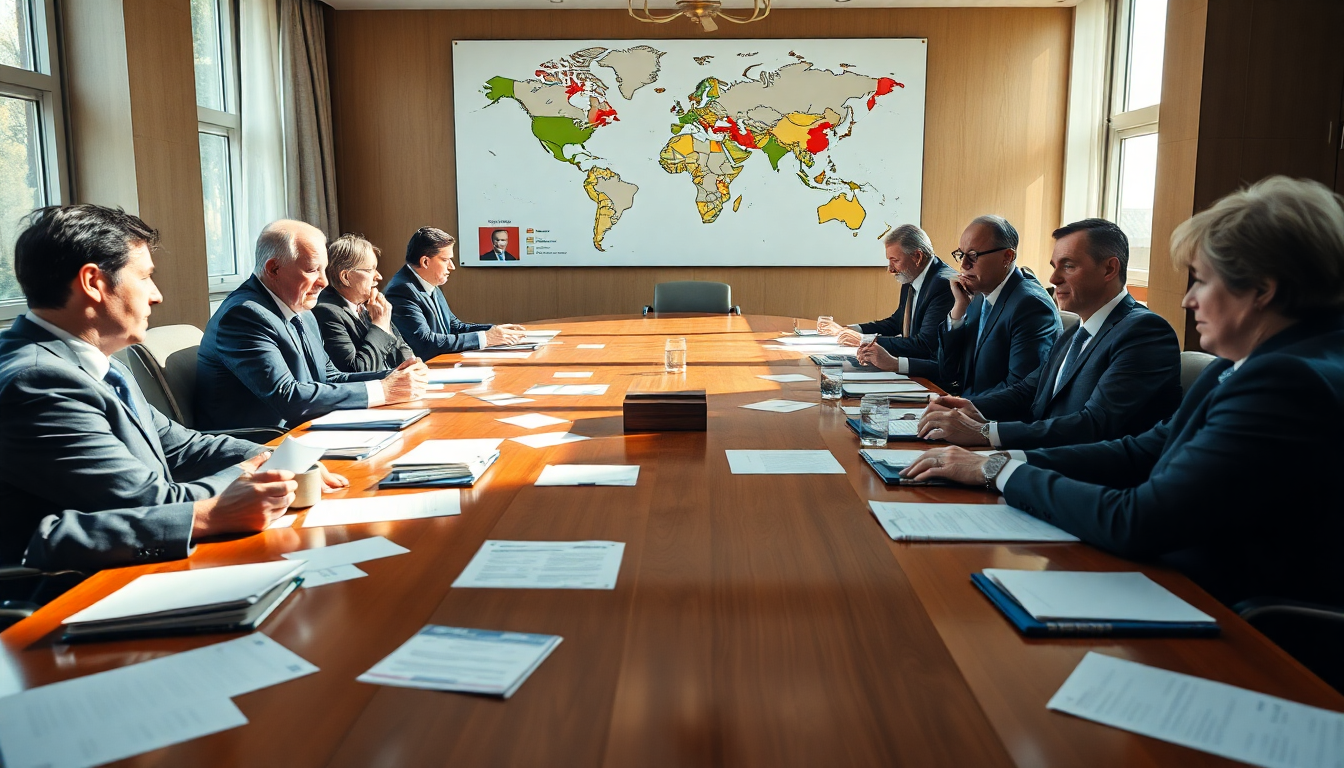Table of Contents
In the intricate world of international relations, the traits of our leaders can significantly influence outcomes. Recently, French President Emmanuel Macron pointed out a particular characteristic of former President Donald Trump—his unpredictability. According to Macron, this unpredictability could actually be a strategic advantage in the context of the ongoing war in Ukraine.
But what does this mean for global diplomacy and conflict resolution?
The Advantage of Unpredictability
Macron’s view on Trump’s unpredictability emerged during a meeting in Washington with Ukrainian President Volodymyr Zelensky. He explained how this trait could work to their advantage against Russia.
In the realm of international diplomacy, leaders often have to navigate through a landscape filled with uncertainty. Trump’s tendency for sudden shifts and unexpected decisions can throw traditional strategies off course, potentially leaving adversaries like Russia unsteady.
Think about it: when a leader like Trump takes an unexpected stance, it forces other leaders to rethink their strategies.
This kind of strategic ambiguity can be a powerful asset in negotiations and conflict scenarios, as it keeps opponents guessing and prevents them from forming a solid counter-strategy. Isn’t it fascinating how unpredictability can shake up the game?
The Role of Personal Relationships in Diplomacy
During the same interview, Macron emphasized the importance of personal relationships in diplomacy, specifically mentioning First Lady Melania Trump. He noted her significant influence on her husband, particularly in humanitarian efforts. Melania’s recent letter to Russian President Vladimir Putin, advocating for peace, highlights the potential of soft diplomacy in high-stakes situations.
Such gestures can resonate on a larger scale, reminding us that compassion is vital even amidst conflict.
This brings to light the idea that diplomacy isn’t just about formal talks; the dynamics between individuals can profoundly impact political outcomes. Macron’s ability to maintain a direct and open relationship with Trump, despite their unpredictable interactions, showcases the necessity of keeping communication lines open in international relations.
How many leaders can say they’ve achieved that?
Comparative Diplomacy: Macron vs. Starmer
Macron also contrasted his relationship with Trump to that of UK Prime Minister Starmer. He asserted that his long-standing rapport with the American leader allows for candid discussions, even when they disagree. This illustrates that effective diplomacy often relies on personal connections and the capacity for honest dialogue, regardless of how unpredictable a leader may be.
Even with occasional tensions, Macron’s strategy of never underestimating Trump points to a nuanced grasp of the complexities in international relations. Engaging with leaders who have unpredictable traits can be a double-edged sword, but if managed properly, it can open doors for progress and resolution. Isn’t that a compelling way to look at global leadership?
Conclusion: The Future of Unpredictability in Global Relations
As the global landscape continues to shift, the role of unpredictability in leadership is likely to remain a key factor in shaping international relations. Macron’s insights into Trump’s unpredictable nature reveal broader implications for global diplomacy, especially in conflict scenarios like the war in Ukraine. For leaders aiming to promote stability and peace in an increasingly uncertain world, understanding and navigating these complexities will be essential. So, how will the next generation of leaders adapt to this ever-changing environment?





